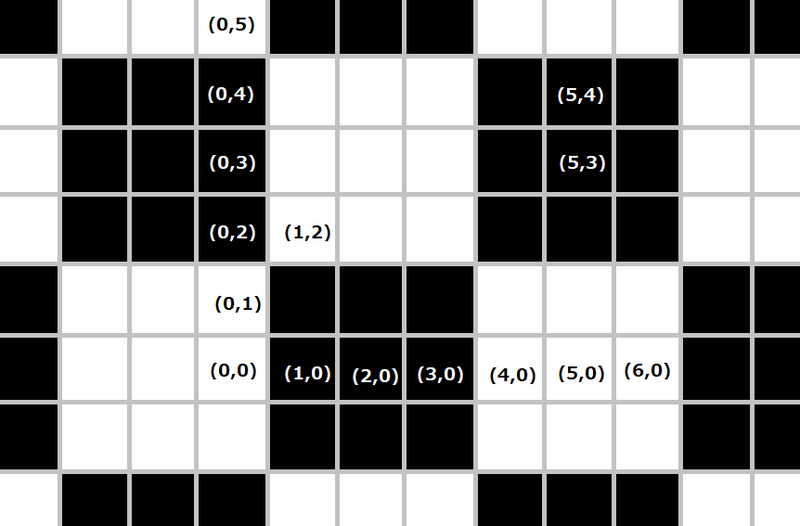这场一边吃饭一边打,确实还是很菜的
C - Traveling
Time limit : 2sec / Memory limit : 256MB
Score : 300 points
Problem Statement
AtCoDeer the deer is going on a trip in a two-dimensional plane. In his plan, he will depart from point (0,0) at time 0, then for each ibetween 1 and N (inclusive), he will visit point (xi,yi) at time ti.
If AtCoDeer is at point (x,y) at time t, he can be at one of the following points at time t+1: (x+1,y), (x−1,y), (x,y+1) and (x,y−1). Note that he cannot stay at his place. Determine whether he can carry out his plan.
Constraints
- 1 ≤ N ≤ 105
- 0 ≤ xi ≤ 105
- 0 ≤ yi ≤ 105
- 1 ≤ ti ≤ 105
- ti < ti+1 (1 ≤ i ≤ N−1)
- All input values are integers.
Input
Input is given from Standard Input in the following format:
N t1 x1 y1 t2 x2 y2 : tN xN yN
Output
If AtCoDeer can carry out his plan, print Yes; if he cannot, print No.
Sample Input 1
2 3 1 2 6 1 1
Sample Output 1
Yes
For example, he can travel as follows: (0,0), (0,1), (1,1), (1,2), (1,1), (1,0), then (1,1).
Sample Input 2
1 2 100 100
Sample Output 2
No
It is impossible to be at (100,100) two seconds after being at (0,0).
Sample Input 3
2 5 1 1 100 1 1
Sample Output 3
No
这个题目不难,就是给你坐标问你能不能到达,首先可以想想能不能到的问题,只要两点需要的步数<=你要走的步数,不直接到的话都是多走偶数步,所以只需要判断奇偶和大小就可以了
#include<bits/stdc++.h> using namespace std; int main() { int n,t=0,x=0,y=0,f=0; cin>>n; for(int i=0,tt,tx,ty;i<n;i++) { cin>>tt>>tx>>ty; if((abs(tx-x)+abs(ty-y))%2!=(tt-t)%2||abs(tx-x)+abs(ty-y)>(tt-t)) f=1; t=tt,x=tx,y=ty; } if(!f)cout<<"Yes"; else cout<<"No"; return 0; }
D - Checker
Time limit : 2sec / Memory limit : 256MB
Score : 500 points
Problem Statement
AtCoDeer is thinking of painting an infinite two-dimensional grid in a checked pattern of side K. Here, a checked pattern of side K is a pattern where each square is painted black or white so that each connected component of each color is a K × K square. Below is an example of a checked pattern of side 3:

AtCoDeer has N desires. The i-th desire is represented by xi, yi and ci. If ci is B, it means that he wants to paint the square (xi,yi) black; if ci is W, he wants to paint the square (xi,yi) white. At most how many desires can he satisfy at the same time?
Constraints
- 1 ≤ N ≤ 105
- 1 ≤ K ≤ 1000
- 0 ≤ xi ≤ 109
- 0 ≤ yi ≤ 109
- If i ≠ j, then (xi,yi) ≠ (xj,yj).
- ci is
BorW. - N, K, xi and yi are integers.
Input
Input is given from Standard Input in the following format:
N K x1 y1 c1 x2 y2 c2 : xN yN cN
Output
Print the maximum number of desires that can be satisfied at the same time.
Sample Input 1
4 3 0 1 W 1 2 W 5 3 B 5 4 B
Sample Output 1
4
He can satisfy all his desires by painting as shown in the example above.
Sample Input 2
2 1000 0 0 B 0 1 W
Sample Output 2
2
Sample Input 3
6 2 1 2 B 2 1 W 2 2 B 1 0 B 0 6 W 4 5 W
Sample Output 3
4
D题也不难吧,但是自己比较笨,并没有做出来
先讲一下题意吧,就是你有一盘黑白棋,每个正方形黑白块的宽度都是k,但是这个黑白棋的起始位置还没有确定,你现在有一个序列,你需要知道其中最多几个有效
n是很大的啊,但是要注意到k很小,所以起始位置就没那么多了,我们需要做的是去枚举起始位置。
但是怎么去解决那个庞大的n呢,因为如果n不大的话我们就可以直接4*k*k*n的做法了,所以这个题目需要二维前缀和去查询,坐标先%一下,之后加加减减就可以了
#include<bits/stdc++.h> using namespace std; int n,k,f[2005][2005],s[2005][2005],t; int S(int i,int j) { return i>=0&&j>=0?s[min(t-1,i)][min(t-1,j)]:0; } int get(int i,int j) { return S(i,j)-S(i,j-k)-S(i-k,j)+S(i-k,j-k); } int main() { cin>>n>>k; t=k*2; string st; for(int i=0,x,y; i<n; i++) { cin>>x>>y>>st; if(st=="B")x+=k; f[x%t][y%t]++; } for(int i=0; i<t; i++) for(int j=0; j<t; j++) s[i][j]=S(i,j-1)+f[i][j]; for(int i=0; i<t; i++) for(int j=0; j<t; j++) s[i][j]+=S(i-1,j); int ans=0; for(int i=0; i<t; i++) for(int j=0; j<t; j++) ans=max(ans,get(i,j)+get(i-k,j-k)+get(i-k,j+k)+get(i+k,j-k)+get(i+k,j+k)+get(i+t,j)+get(i,j+t)); printf("%d ",ans); return 0; }